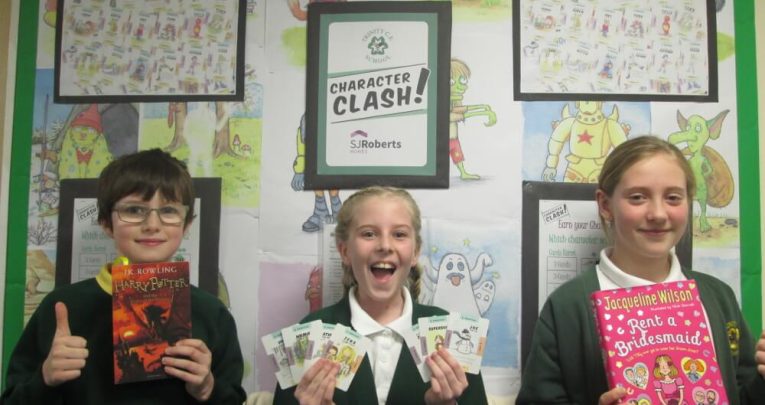Boost Reading with Trading Cards

We jumped on the trading card trend to improve reading skills in our primary school, says John Rowe…

- by John Rowe

Every teacher and parent knows that rewards are one of the simplest way to motivate children. They can encourage students to learn and can also reinforce positive behaviours.
While I’d like to think that reading should be its own reward, it’s undeniable that some children need an extra incentive to develop good habits and eventually choose to read for pleasure.
Alongside my deputy head, Jack Pittaway, we’ve recently launched a new project in my school after studying Chinese research on the impact of children’s reward systems.
The research found that traditional rewards – like stars and stamps – are often valued less by children. Instead, it’s been proven that you can achieve more positive outcomes by rewarding students with things that continue to have a value after they’ve been earned.
This idea led to us devising our own trading card game system called Character Clash. The more children push themselves with their reading choices, the more cards they can collect.
After earning their ‘starter pack’, pupils can earn more cards by completing quizzes on the books they’ve read through the accelerated reader system that our school uses.
The system fits neatly into our existing work to promote reading – we’ve always rewarded children’s performance in their reading quizzes and regularly changed the rewards to keep things fresh.
There are 50 unique cards in total for children to earn. We secured sponsorship from a property developer to fund their creation and used the skills of professional artist Sarah Lister (also a parent at our school) to design a number of monster and superhero characters.
To add to the fun, every character has been given a name and a score for different attributes such as magic, strength, bravery and intelligence. These scores enable the children to use the cards in a series of ‘comparing’ games.
We’ve produced a number of games of increasing degrees of complexity to enable all children in the school to have fun playing with the cards at breaktime.
While we’re keen to ensure that the system doesn’t encourage mercenary behaviour among the children, I’m pleased to report that we haven’t experienced any of the usual squabbles associated with trading card games since we launched our project.
This may be because unlike other similar games, children don’t actually swap their Character Clash cards (although they are allowed to swap duplicates with their friends). We also distribute all new cards just before hometime on Friday.
This means that most of the cards stay at home and also enables parents to engage with the project by monitoring the growth of their child’s collection.
Our end-of-KS2 reading outcomes have been consistently above national averages for the last few years, both in terms of attainment and progress. We’re looking to build on this to ensure children do as well as they can by rewarding them for reading more and developing a lifelong love of books.
Since we launched the project last month, we’ve already noticed a sharp increase in the number of children completing quizzes on the books they’ve read.
Boys in particular have shown considerable improvement in their levels of engagement with reading and now equal the girls in terms of completing quizzes – a gap we’ve been keen to address for a while.
Interestingly, the research that our project was based on also reported positive outcomes for boys. Like many schools, despite our best efforts, engaging boys in reading was often hard to achieve.
However, it seems that the trading cards have gone some way to addressing this and will hopefully help our boys to develop good reading habits.
We plan to review the impact of our new scheme at the end of the summer term, but if what’s needed to help children develop confidence and acquire a lifelong reading ‘bug’ is handing out a few cards, I certainly think it’s worth it.
John Rowe is headteacher at Trinity CE Primary in Ford, Shrewsbury. Find out more at trinity.shropshire.sch.uk and follow on Twitter at @trinitycep.










